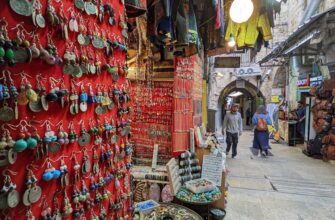## IntroductionnnThe rise of cryptocurrency has sparked intense debate among Muslim investors: **Is trading crypto halal?** With over 1.8 billion Muslims worldwide seeking Sharia-compliant financial solutions, this question carries significant weight. This guide explores Islamic scholarly perspectives, key concerns, and practical approaches to navigating crypto trading while adhering to Islamic principles.nn## Understanding Halal Trading FundamentalsnnHalal trading in Islam must avoid:n- **Riba (Interest)**: Earning or paying fixed interest is strictly prohibited.n- **Gharar (Excessive Uncertainty)**: Transactions with ambiguous terms or speculative nature are forbidden.n- **Maisir (Gambling)**: Investments resembling gambling or pure chance violate Sharia law.n- **Haram Industries**: Involvement with prohibited sectors like alcohol or gambling invalidates compliance.nn## Crypto Trading Concerns in Islamic Financenn### Gharar: The Uncertainty FactornCryptocurrencies’ extreme volatility creates inherent uncertainty. Price swings of 10-20% in a single day introduce significant gharar, challenging transaction validity.nn### Riba: The Interest DilemmanMany platforms offer “staking rewards” or “yield farming” – mechanisms resembling interest-based earnings that may constitute riba.nn### Maisir: Gambling ParallelsnDay trading and leveraged positions mirror gambling behaviors, as profits often depend on unpredictable market movements rather than asset ownership.nn## Scholarly Opinions: Diverse Interpretationsnn### Permissible Viewsn- **Indonesia’s Nahdlatul Ulama**: Allows crypto as tradable assets if used as commodities.n- **Dubai’s Fatwa Committee**: Approves Bitcoin as permissible money if volatility risks are mitigated.nn### Conditional Approvaln- **Scholars like Mufti Faraz Adam**: Permit spot trading (immediate settlement) but prohibit futures/derivatives due to gharar.nn### Prohibitive Stancesn- **Pakistan’s Securities and Exchange Commission**: Declares all cryptocurrencies haram due to volatility and anonymity issues.n- **Turkey’s Diyanet**: Forbids crypto as “not compliant with Islam.”nn## How to Trade Crypto Halal: Practical Guidelinesnn### Step 1: Asset Selectionn- Choose established coins with utility (e.g., Ethereum for smart contracts)n- Avoid meme coins and purely speculative assetsnn### Step 2: Platform Practicesn- Use spot markets only (no leverage or futures)n- Avoid interest-bearing accounts and lending programsn- Ensure transparent ownership transfernn### Step 3: Transaction Principlesn- Hold assets for tangible utility or long-term value (not speculation)n- Conduct thorough research (eliminate gharar)n- Pay Zakat on holdings if exceeding nisab thresholdnn## Halal Crypto AlternativesnnConsider these Sharia-compliant options:n1. **Islamic Coin (ISLM)**: First crypto with built-in Zakat mechanismn2. **Gold-backed tokens**: Physical asset collateralization reduces ghararn3. **Sharia-certified exchanges**: Platforms like CoinMENA with Fatwa approvalsnn## FAQ: Is Trading Crypto Halal?nn**Q: Can Muslims mine cryptocurrency?**nA: Permissible if energy costs are transparent and operations avoid haram industries.nn**Q: Is Bitcoin halal?**nA: Scholars disagree. Some approve its use as digital gold; others prohibit it due to volatility.nn**Q: Are stablecoins like USDC halal?**nA: Generally acceptable if fully backed by tangible assets and free from interest mechanisms.nn**Q: How do I pay Zakat on crypto?**nA: Calculate 2.5% of holdings exceeding nisab value (based on gold/silver) annually.nn**Q: Can I use crypto for halal businesses?**nA: Yes, as payment for Sharia-compliant goods/services with immediate settlement.nn## ConclusionnnWhether crypto trading is halal remains nuanced, depending on transaction methods and scholarly interpretation. By avoiding leverage, interest schemes, and speculative gambling-like behavior – while prioritizing asset utility and transparency – Muslims can cautiously participate. Always consult your local Mufti for personalized guidance, as crypto’s evolving nature continually reshapes this critical Islamic finance discussion.








